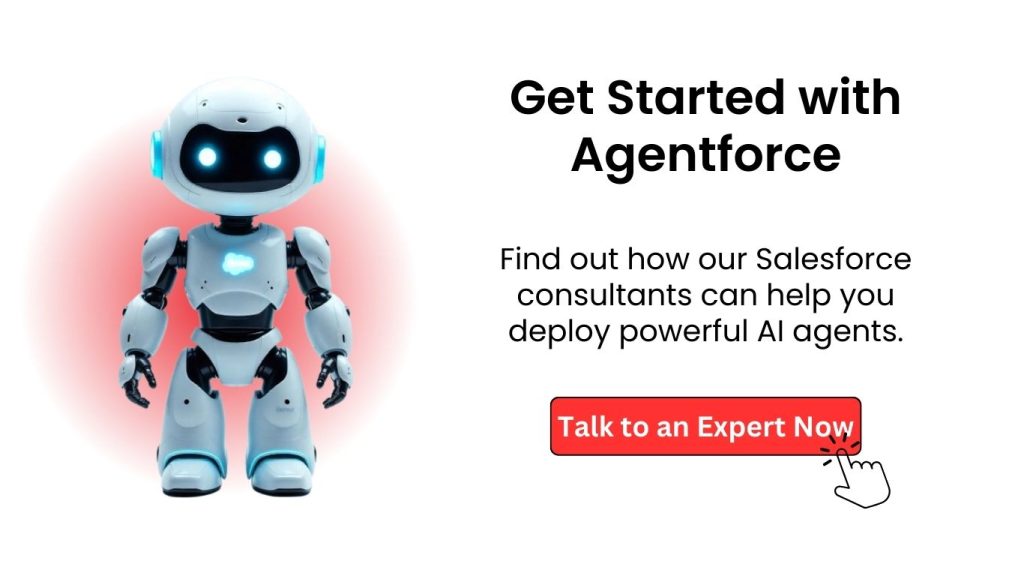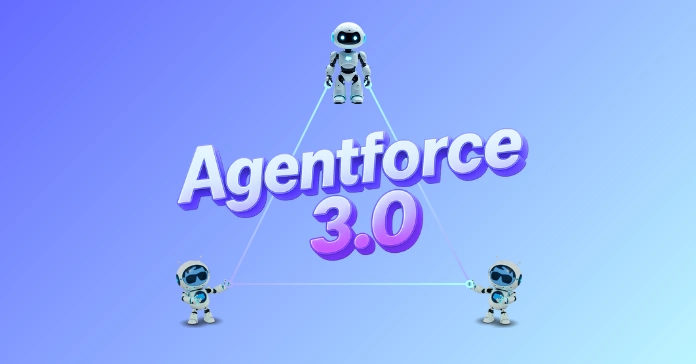Salesforce has officially launched Agentforce 3, the next-generation platform update in its growing family of digital labour solutions. Building on the momentum of Agentforce 2.0, this release introduces new tools, enhanced interoperability, and significant improvements in scalability, trust, and performance, making AI agents more observable, governable, and impactful than ever.
So what’s new in Agentforce 3? Here’s a quick breakdown.
Table of Contents
Command Center: Full Visibility into Agent Performance
At the core of Agentforce 3 is the all-new Agentforce Command Center—a comprehensive observability layer for AI agents. It enables businesses to track performance metrics, agent adoption, error rates, real-time latency, and escalation trends in a single, unified dashboard. Teams can now monitor what AI agents are doing, pinpoint areas of friction, and optimize workflows accordingly, right in the flow of work.
For example, a service manager using Agentforce in Service Cloud can now spot a drop in agent success rate and take action instantly, just like they would with a human teammate.
Plug-and-Play Interoperability with MCP and AgentExchange
Another major upgrade in Agentforce 3 is support for Model Context Protocol (MCP)—think of it as the “USB-C” for AI agents. This makes agents interoperable with external tools and systems without custom code.
Through AgentExchange, businesses can now integrate Agentforce with over 30 trusted partners, including AWS, Google Cloud, Stripe, PayPal, Box, IBM, and Notion. From document summarization and transaction management to AI content generation and video analysis, Agentforce 3 empowers AI agents to take smarter, contextual actions across the enterprise stack.
Reinforced Trust and Performance with Atlas Architecture
Under the hood, Agentforce 3 runs on an enhanced Atlas architecture that offers 50% lower latency, higher resiliency through automatic model failover, and real-time response streaming.
It also supports new LLMs hosted within Salesforce infrastructure—including Anthropic’s Claude Sonnet and soon Google’s Gemini—ensuring that enterprises in high-compliance industries can confidently scale their use of AI agents without compromising governance or security.
The addition of web search grounding and inline citations gives agents more accurate, verifiable responses—an essential step for AI in regulated environments.
Global Expansion and Public Sector Readiness
Agentforce 3 also takes a global leap forward. It now supports deployments in Canada, the U.K., India, Japan, and Brazil, and is available in six new languages, including French, Spanish, Japanese, and Portuguese. Over 30 more languages are in the pipeline.
Even more importantly, Agentforce 3 is now authorized for use in the U.S. public sector with FedRAMP High Authorization—a clear sign of Salesforce’s intent to bring Agentforce to critical government use cases with the highest standards of trust.
A True Step Up from Agentforce 2.0
While Agentforce 2.0 laid the groundwork with task automation and agent orchestration, Agentforce 3 is about maturity: observability, compliance, extensibility, and real-world action. It brings AI agents closer to the center of enterprise productivity—working alongside human teammates, not just automating in isolation.
From IT to service to sales, this release marks a shift from AI as a tool to AI as a digital labor force—ready to drive outcomes, not just suggestions.

End Note
If you’re evaluating how to use AI agents in a way that’s scalable, secure, and productive, Agentforce 3 might be the right step forward. Whether you’re starting from scratch or evolving your AI strategy, let’s talk.
Opt for Salesforce Consultation and take the next step in your digital labor transformation.


